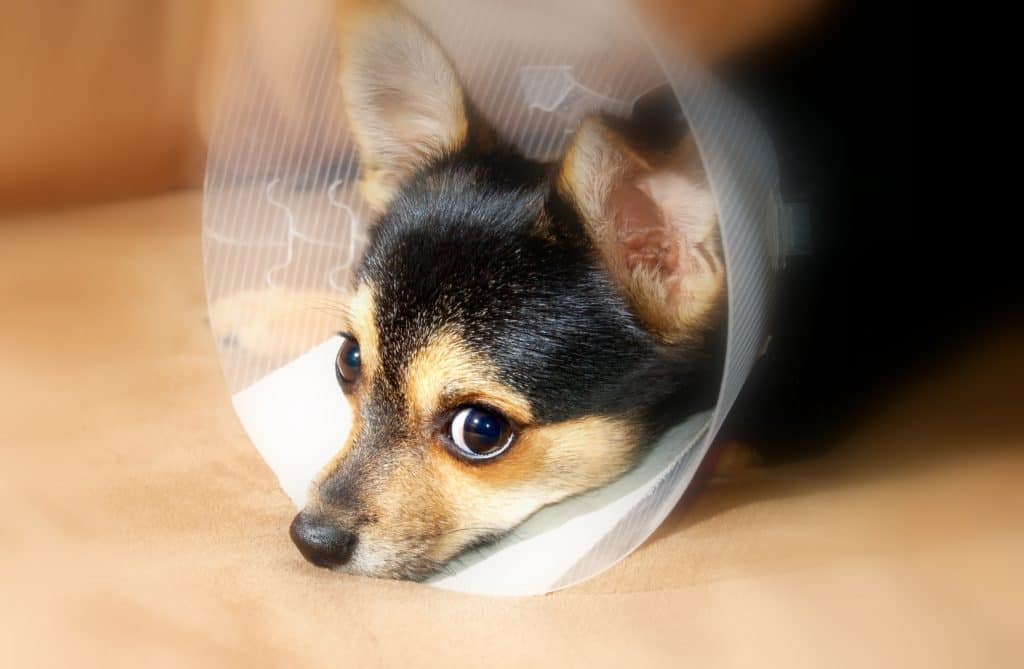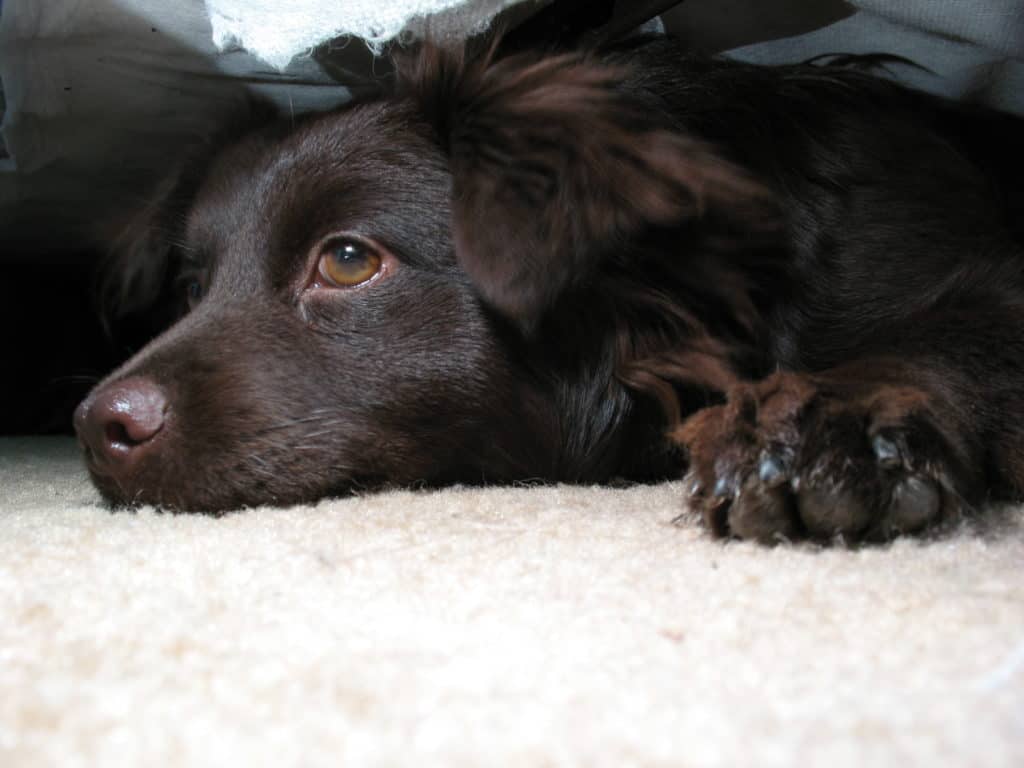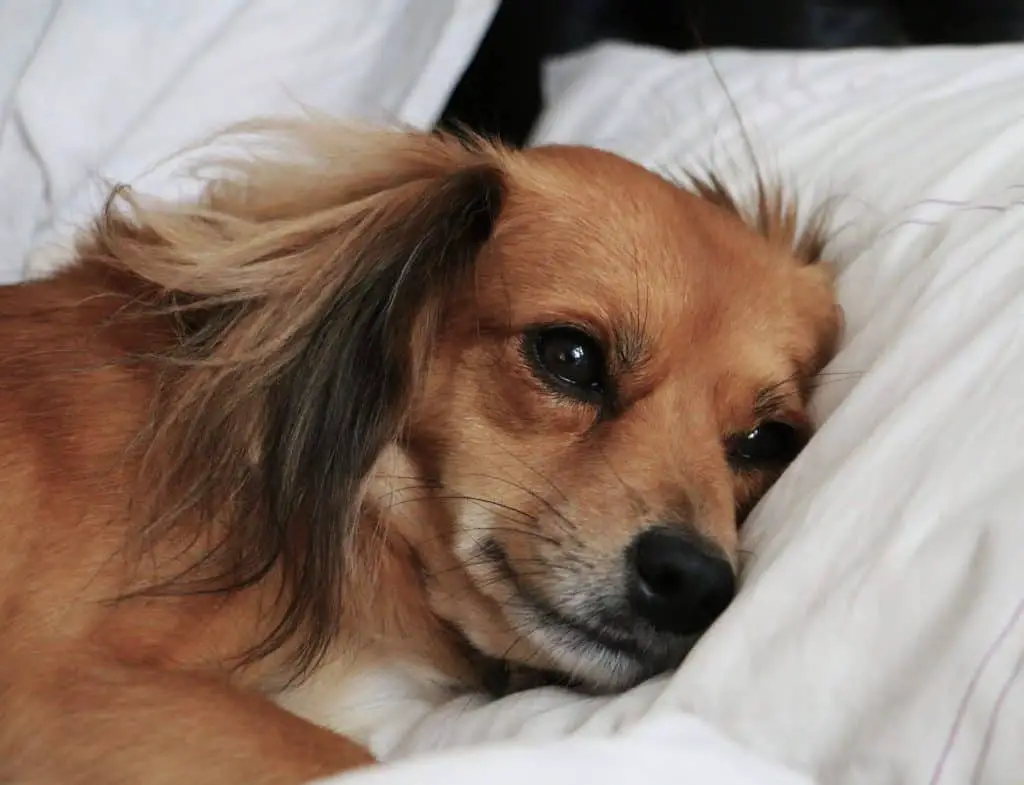Surgery recovery is hard on dogs as it is on humans. Given that many people consider their dogs part of their family, as much as their own children, it’s easy to understand how difficult it can be to leave a dog alone after surgery. While it’s always best to follow the instructions given by the veterinarian, you can use some additional advice in this difficult time.
Contents
Can I Leave My Dog Alone After Surgery?
Depending on the type of surgery and care instructions your veterinarian has given you, you should be able to leave your dog alone for small amounts of time after surgery once the anesthetics have worn off. It’s advisable to keep an eye on your dog so they don’t chew at their wounds or move around too much.

Your vet should let you know how much care your dog needs and how often you should check on them. If it was necessary that you stay home with your dog constantly, your vet would not discharge them so soon.
It also helps to watch out for the signs that indicate your dog is in pain after surgery. This will allow you to better care for them during recovery. Some signs include:
- Not wanting to eat or drink
- Not wanting to move
- Chewing or licking wound
- Shaking or trembling
- Changes in behavior
Don’t feel alarmed if you notice any of these signs. Pain is associated with the recovery and you should focus on how to help your dog feel better after surgery.
How Can I Help My Dog After Surgery?
There are a few things you can do to help ease your dog’s recovery and make them feel better after surgery. These things can also ease your mind and have you less worried about how your dog is feeling while they recover.
Make Your Dog Feel Comfortable
This is a simple, yet, important tip to help your dog feel better after surgery. Give them as much comfort as you can. This could be having them by your side whenever you can or creating a more comfortable bed for them.
- Make your dog a new bed: If your dog just went through surgery involving a cut in the abdomen or back, it’s best to have your dog sleep straight instead of rolled up. This will be less painful for your dog and will allow the wound to heal quicker. Create a small rectangular bed for them to lay in; this will prevent them from rolling into a ball while they sleep.
- Keep your dog relaxed: It helps to keep small children away from your dog, especially the first day they come home after surgery. Many things may stress your dog out and it’s better to help them feel relaxed when they first come home, as they may feel disoriented and different.
- Regulate your dog’s temperature: If your dog is having trouble keeping their temperature up, provide a blanket, or even keep them close to you to help increase their body temperature. If this doesn’t seem to help, use a heated blanket or heating pads. Likewise, if the weather is hot outside and your dog’s temperature is fine, keep him in a cool room to help him feel more comfortable.

Encourage Your Dog to Eat
Most dogs won’t want to eat much on their first day back from the clinic or animal hospital. This is to be expected and you shouldn’t worry too much. However, it helps to cook your dog a hot meal rather than offer him dry dog food. This will likely make him feel like eating even though he may not have an appetite. If your dog only eats a little this is normal and his appetite will most likely go back to normal within a few days.
Make sure to stick to non-greasy foods when making a meal for your dog and choose meat with lower fat such as turkey or chicken. This will be best for him if he’s not able to get regular exercise to burn high calories while he recovers.
Avoid Excess Movement
Depending on the surgery your dog is recovering from, they may need to avoid running and jumping and other activities. You don’t need to keep them laying down all day, however, keeping them off their feet as much as possible can allow them to recover quicker.
When leaving your dog alone, keep them in areas where they can’t leap onto furniture or go up the stairs. You won’t need to keep them in a cage unless stated by your veterinarian. For these cases, it may help to purchase a larger cage. This can allow them to stand up or turn around so they don’t feel so cramped.
It may be difficult to keep your dog from moving around so much, however, it is possible. Buying them new chew toys can keep them steady and busy. This also helps to keep their mind off of their wound.
Follow Postoperative Instructions and Continue With Check-Ups
No matter what you think is best for your dog post-surgery, you should always follow the instructions that the veterinarian gives you. If your dog is prescribed medications, make sure to give them regularly or when needed. Medications are prescribed to relieve pain, as well as allow your dog to heal quicker.

It’s important to follow what your vet advises you to do in regards to your dog’s recovery. If you feel the conditions are too harsh on your dog or you don’t agree with the instructions talk with your vet to understand why these things are important for good care. Your vet may even be able to give you further advice on how to make your dog comfortable or give you different instructions on how to care for your pet.
Always make sure to communicate with your dog’s doctor for anything you’re unsure about. Likewise, follow up with regular appointments to make sure your dog’s recovery is going well.
How Long Does It Take For a Dog to Recover After Surgery?
Depending on the surgery your dog has gone through, recovery time can vary. Abdominal surgeries can take around 3-6 weeks to heal completely, while operations involving bones can take 4-5 months for your dog to recover.
The best thing to do is to ask your veterinarian about recovery times for the exact operation your dog has gone through.
Conclusion
Leaving your dog alone after surgery can be hard on you, however, you may not know that giving them space will allow them to rest easier. You don’t need to feel bad about leaving them alone, as long as otherwise stated by your vet, leaving them alone is perfectly okay.
